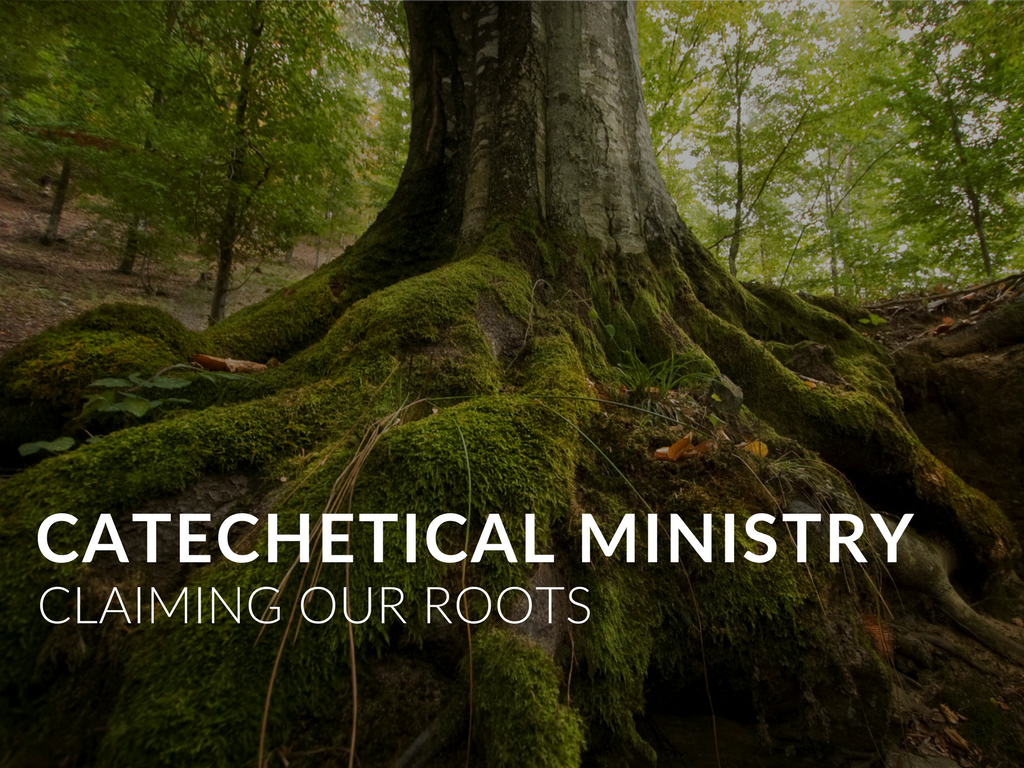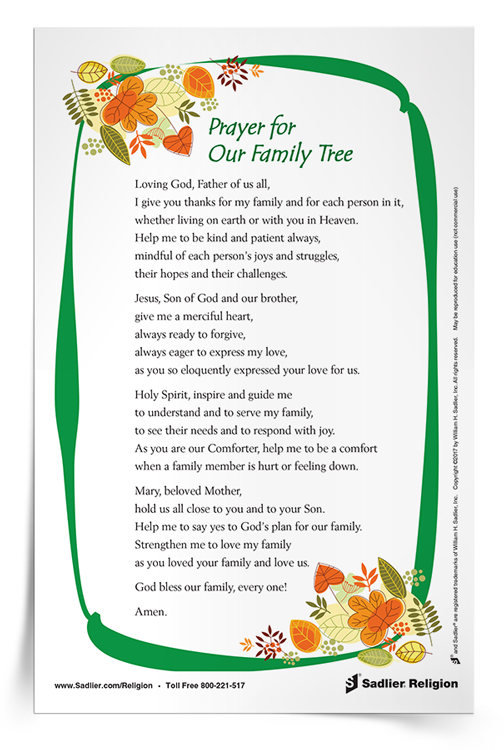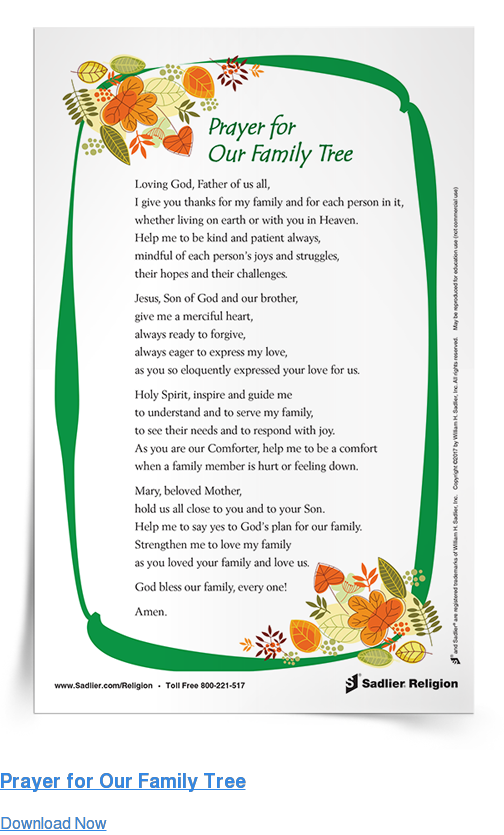September 20, 2017 WBAS Cat Support Articles, WBAS Cat Prayers & Reflections
Sadlier Religion Consultant and guest blogger, Carole Eipers, reflects her personal history with catechesis and how it affected her work on a presentation called “The History of Catechesis: Seeking the Timeless.” Carole offered this presentation as a webinar, which is archived at Lifelong Learning Webinars.
Two recent experiences have me thinking about history—both personal and communal.
First, I recently spent time with a cousin researching our ancestry. It is a fascinating exercise, discovering new facts and people, searching sources for any information that might give insight into our familial qualities.
The second experience was doing research to present a webinar for Sadlier on the history of catechesis. That search began with Jesus and followed our ancestors in ministry to see how they shared the faith and the ways in which their contributions have helped to shape our catechetical ministries.
In both of these experiences I was sometimes tempted to say when unearthing an unpleasant fact, “That can’t be true.” In my personal history I did sometimes not want to own a shady character in our tree. In our catechetical history I wanted to omit the people and efforts that seemed less-than-effective.
Whether the history is personal or communal, we may discover facts that we do not want to claim as part of us. But parts they are and we can learn from the disappointing information as well as from the uplifting.
As I reflected on these histories, I found myself becoming conscious of the habit of hindsight—making judgments on people from my place in history rather than from their time. And then I had a deep desire to meet them—great-great-grandparents, ancestral catechists—to visit and understand them and their ways.
Family stories are so important as we endeavor to understand our roots. We can appreciate the struggles, the joys, even the quirks of relatives we have never met. We can even begin to identify our resemblances to those relatives long dead.
I never met Poppy—my paternal grandfather—but I love the story my parents told me about him. It was the Fourth of July and Poppy’s wife was sick in bed. The family was going to see the fireworks at the park and Poppy felt bad that Sarah couldn’t go. So he went outside, stood beneath her bedroom window lit matches and threw them up so Sarah would see fireworks! In this brief tale, I see family traits that endure: a sense of fun and humor to be sure, a desire to include everyone, a sense of celebration and of compassion too.
Our communal stories are important as we endeavor to know our catechetical roots and our ministerial family tree. We often look back to Jesus to see and follow how he taught—there is even a Church document entitled “To Teach as Jesus Did.” But beyond the time of Jesus himself, what are the stories and people that can inspire us and encourage us?
Researching our history reminded me of the early Church stories and how Paul and others did catechesis through visits and then by letters. Meeting people on “their turf” continues to be important as we live our missionary discipleship. And keeping in touch with those we evangelize and catechize is important, though we more likely use texting than letters.
I was reinspired by the Church Fathers desire to help people understand Catholic beliefs. I re-read Saint Augustine’s De Catechizandis Rudibus and knew that our efforts to attend to the needs of those being catechized in order to teach effectively owes a lot to Augustine’s wisdom.
In my Mom’s last years, she told and retold stories to us—even when she knew she told us the same stories before. Sometimes she would say, “You tell the story” and as I did, she would correct my errors and add details I had forgotten. She knew the stories would soon be mine to hand on. Mother Church tells us the same stories too knowing if people are to know Jesus, the stories are ours to hand on. What family stories do you hand on? What Jesus stories do you want to be sure those you catechize know?
As I ended, for now, my researching histories, I thought of those who, years from now, may find me in their “tree”, personal or communal. And I began to think and to pray what story I would like to be told about me. When someone discovers you in their research, what do you want to be remembered for?
Bright Ideas
-
For catechists and teachers: Find resources for your catechetical sessions and religion classes to use with your students and their families.
-
Download Carole Eipers’ Prayer for Our Family Tree and share it in your parish or home.





